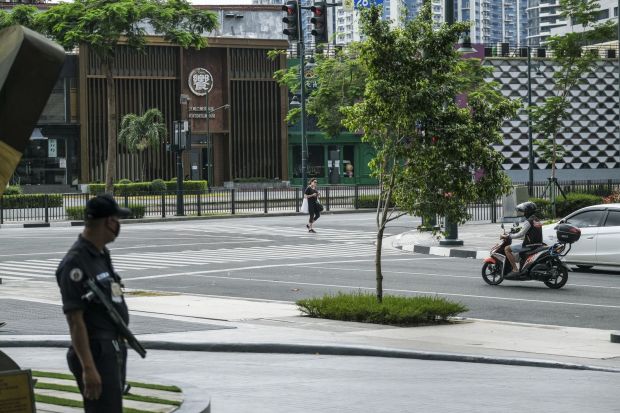Impact of Covid-19 on Philippine economy may be larger than thought
THE impact of the Covid-19 outbreak on the Philippine economy may be larger than first anticipated as the shock evolves, a report by JP Morgan Chase Bank suggested as it lowered the country’s growth forecast for 2020.
“We now see full-year 2020 growth at 5.1 per cent year on year, from a previous forecast of 6.2 per cent, undershooting the government’s GDP (gross domestic product) target of 6.5 to 7.5 per cent,” the American investment bank said in a report on Monday.
This reverses its earlier assessment that the economic impact could be “somewhat muted” relative to Philippines’ regional peers.
The bank said this is due to travel restrictions, given that inbound tourism has played an increasingly vital role the Philippines’ growth, as well as domestic behavioural response to the pandemic, which could deliver a demand shock to the economy, implying a slowdown in the first half of the year before growth recovers thereafter.
Visitors from South Korea and China respectively make up 24.1 and 21.1 per cent of all arrivals to the Philippines, while Americans comprise 12.9 per cent of visitors.
China’s Wuhan city is original epicentre of the novel coronavirus, which has sickened nearly 170,000 people globally and killed over 6,500 since the virus emerged late last year. China has the largest number of cases at 81,0202, while South Korea has the fourth largest cluster in the world at 8,162 cases. Last Wednesday, the World Health Organization declared the coronavirus a pandemic after the number of cases escalated in Europe and North America.
“There is a risk that the Covid-19 shock may proliferate through Q2 2020, the dry season which typically sees more seasonal tourism in-
flows, raising the risk of a more protracted travel ban,” the report said.
In addition, the bank said behavioral responses to the Covid-19 shock domestically could intensify the negative impact on the economy through lower discretionary household spending.
“While the recent decline in oil prices may provide some offset to the slowdown through savings, which could spill over into stronger domestic demand, households may save the windfall in a climate of lingering uncertainty,” the report said.
Oil prices crashed, nearing US$30 a barrel after talks between Saudi Arabia and Russia collapsed in early March, bringing an end to OPEC+ policies and production cuts.
As oil prices remain lower, JP Morgan said inflation could ease to 1.6 per cent over-year-ago, from its previous 2.5 per cent forecast, given the strong fuel-related component in the CPI basket. This implies monetary flexibility for the central bank, it said.
Separately, as an oil importer, the Philippines will benefit from the drop in energy prices, which reduces the oil-related import bill. JP Morgan said a 40 per cent decline in oil prices should lead to 1 to 1.4 per cent GDP rise in the goods account balance.
As for its currency, JP Morgan noted that the Philppine peso has remained resilient in the face of the Covid-19 shock, relative to others in the region.
It said in the past, the sum of the trade balance & foreign portfolio flows has exhibited a tight relationship with gross foreign currency re-
serves, which could explain the peso strength between mid-2018 and the first quarter of 2019, but that relationship appears to have broken down since late 2019.
“In our view, the rise in the invisibles balance, which we noted started in 3Q19, could be the marginal driver of the stronger overall balane of payments, and in turn the peso, though we are cognizant that high-frequency data remain limited,” it said.


 English
English




